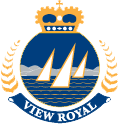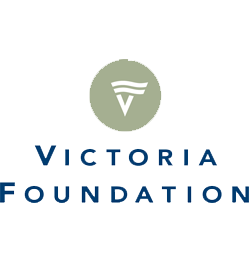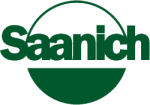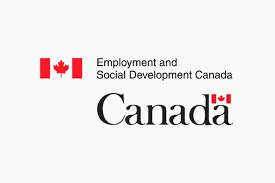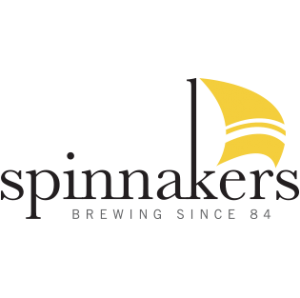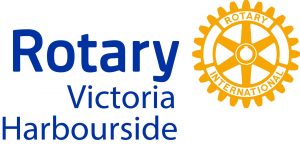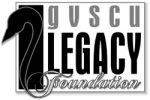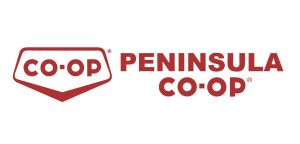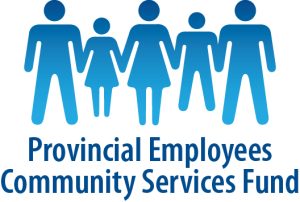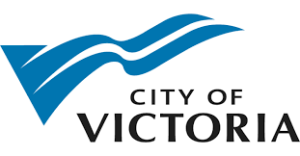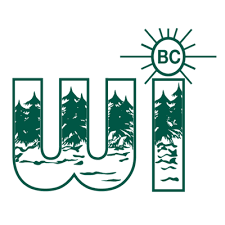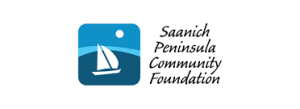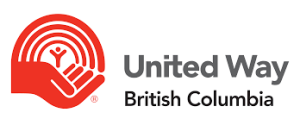Our mission is to build a resilient food system in Greater Victoria by growing, harvesting, and sharing food. Year after year, we strive to make a difference by caring for the land, empowering our community, and building momentum within the local food movement to continue to connect people with healthy food.
We care for the land
By increasing biodiversity, abundance and health in the Urban Orchard and supporting the development of healthy food environments.
We empower the community
By providing resources and supports to program participants, volunteers and staff to help them become leaders in food systems change.
We are building a movement
This is more than just food. By providing opportunities for people to learn and interact with the local food system, we are changing the way the community lives, thinks, and eats in Greater Victoria. When you collect dirt under your fingernails gardening, or feel sunshine warm your shoulders in an orchard, or bite into a fresh picked fruit and let the juice drip down your chin, you are grounded in a shift that strengthens our connections with each other and the natural world.
Upcoming Events
Winter Fruit Tree Pruning
Learn about dormant season fruit tree pruning with live demos at the beautiful Welland Community Orc…
February 22 @ 10:00 am – 12:00 pmBackyard Mushroom Cultivation
Learn how to set up a perennial mushroom bed in your own backyard and enjoy edible mushrooms for yea…
March 15 @ 1:00 pm – 3:00 pmSpring Fruit Tree Grafting
Learn the basic skill and knowledge you need to start grafting and graft your own heritage apple tre…
March 29 @ 10:00 am – 1:00 pm
Staff
Lisa Small
Communications Coordinator [email protected]Lisa Small
Lisa has always had a deep love for getting her hands in the soil and has spent over a decade working on small-scale farms in coastal BC. She was the Programs Coordinator for the Capital Region Food and Agriculture Initiatives Roundtable (CRFAIR), where she developed and coordinated Growing Together—a collaborative initiative that created tools and resources to support people in growing food. She is deeply passionate about supporting local agriculture, increasing food literacy, and helping people grow and access good, local food. In addition to her work with LifeCycles, Lisa coordinates the Yates Street Community Garden on lək̓ʷəŋən Territory in downtown Victoria. She is committed to being in service to community and to building relationships through growing and sharing food.
Alex McArdle
Executive Director [email protected]Alex McArdle
Alex (she/her) is the owner and primary farmer at Bird & Bean Farm, while also taking on her role here at LifeCycles as the Executive Director. She is a settler on this land and grew up on unceded Algonquin Anishinaabeg traditional territory, in Ottawa. Alex's road to working in food and agriculture has been a bit circuitous as she started her education in sustainability then attending law school, before coming back to her true passions in anything food related and farming. This year she looks forward to being a contributing member on her farm as well as working at LifeCycles to bring her love of food and her hate for food waste together!
River Stevens
Welland Coordinator [email protected]River Stevens
River (they/them) is passionate about increasing the resilience of urban and suburban landscapes through utilising plants native to these territories, increasing food security through integrating edible perennials and fruit trees into the landscape, and helping to increase connections to land through making gardening more possible and accessible. Currently they do this work though their landscaping business Nightingale Gardens, and are very excited to be expanding this work as they take on the role of Welland Orchard Coordinator.
Their background is in agriculture, with five seasons spent working on small-scale organic farms, as well as a Landscape Horticulture Certificate (Red Seal levels 1 and 2) from the Pacific Horticulture College. They have also spent several years facilitating group learning and activities, for both kids and adults, in a variety of environments.
Their family is primarily from Ireland, Poland, Belarus, Ukraine and England. They were raised on kʷikʷəƛ̓əm territories (Coquitlam BC) and have been living on W̱SÁNEĆ and lək̓ʷəŋən territories for the past 10 years. Their work is grounded in intersectional queer feminism, disability justice, and decolonization. They are queer, trans, and neurodivergent, and have a lifelong love of fruit trees.
Ella Swan
Fruit Tree Project Manager [email protected]Ella Swan
Ella (they/them) is enthusiastic about increasing food security and reducing food waste. Raised to value local food systems, they have been working and volunteering for organizations related to sustainable agriculture and ecosystem health since their early teens. Their educational background is in Gender Studies, Environmental Studies and Restoration of Natural Systems. For Ella, the links between healthy food, healthy people and healthy ecosystems are clear. With practical experience in environmental restoration, farming and volunteer management, they are looking forward to supporting the administrative side of the Fruit Tree Project as well as joining in on fruit picks when opportunities arise. Ella is also passionate about art, and has a textile art practice. This is a way to (literally) weave together arts and environmentalism with their focus on reused materials, sheep to yarn explorations and natural dying. Ella is a settler of Scottish and English descent, and has been an uninvited guest on W̱SÁNEĆ and lək̓ʷəŋən territories for the past 9 years. They were born and raised on the territories of the Ktunaxa and Secwépemc peoples.
Hannah Kirk
Harvest and Volunteer Coordinator [email protected]Hannah Kirk
Hannah (She/Her) is incredibly excited to be invited back for another season with LifeCycles, this time as a Volunteer Coordinator. Some may remember her from picks and training last year, for those of you who have not met Hannah yet she discovered her passion for urban agriculture during her CSJ with LifeCycles during the summer of 2024 as a Harvest Support Worker. Hannah received an education in Environmental Technology from Camosun College. From there she went on to be a data collector for a transportation management plan before working at a wild animal rehabilitation center for 2 years. Between the 2024 and 2025 seasons she gained more experience in administration by working as an Office Coordinator with a marine environmental sustainability company. Yet, the pull of being outdoors picking fruit was too strong and she decided to reach out to LifeCycles. In Hannah's off time she can be found volunteering with the Victoria Pride Society, raising a rescue kitten, playing dungeons and dragons with her friends, and exploring the great outdoors. Hannah feels lucky to have grown up within the territories of the Tsimshian, Nisga'a, Gitxsan, Haida, Taltan, and Wet'suwet'en peoples before moving to the W̱SÁNEĆ and lək̓ʷəŋən territories 10 years ago.
Board
Pierre Chauvin
Originally from France, Pierre moved to BC in 2017 and got involved in the local francophone community. In 2019 he moved to Victoria to work as Radio Victoria’s executive director, B.C.’s only French-language radio station. As a member of the Victoria Bike Cult™, Pierre enjoys avocado toasts, advocating for people’s access to accessible trails and paths, and community-led initiatives. After a couple of incredible seasons volunteering as a harvest leader for Lifecycles, Pierre decided to get involved behind the scenes and join the board of directors.
Orvis Starkweather
Orvis Starkweather joined the LifeCycles board after volunteering as a Harvest Leader with the Fruit Tree Project. Orvis has been a grateful guest on the territories of the Esquimalt, Songhees and WSÁNEĆ peoples for the last 4 years. Orvis is descended from Irish, English, Scottish and German people that settled around the Great Lakes. Orvis is committed to food sustainability as a way of ensuring healthy communities and environment. Orvis comes to the board with a background in queer and trans organizing, including successfully advocating for the creation of gender neutral bathrooms, community building, and resource development. Orvis works as the People and Equity Analytics Advisor with the Human Resources Department at UVic. Orvis likes to sew, preserve food, cycle, visit art galleries, and do jigsaw puzzles.
Addtthya Verma
From a young age, Addtthya was drawn to the principles of agroecology—the idea that growing food should work in harmony with nature. Discovering the joy and power of self-sustaining agriculture early on, Addtthya developed a deep passion for clean, organic food and the belief that it can nourish not just individuals but entire communities. Blending this passion with a strong background in technology and hands-on community work, Addtthya brings unique perspective for growing food. Focused on using tech to support organic farming, reduce food waste, and grow resilient urban food systems, Addtthya is committed to making a meaningful and lasting impact.
Apollin Lu
Apollin has been passionate about food my whole life. Her dad is a farmer, and she spends most of her weekends helping out on his farm. She understand how difficult it is to grow food, which is why food waste is an issue that is close to her heart. At Lifecycles, she offers a unique perspective, as someone who is engaged in the food security community and also youth. She is a member of the Urban Food Table, and there she learned a lot of different perspectives on food production. She is always interested in hearing what others think about the food system here in BC, and she thinks Lifecycles is a great opportunity to engage further. At the Food Recovery Alliance, she helps recruit new members and host events. She feels that this experience will allow her to get more youth engaged with the events that Lifecycles has. In addition, she is a member of the Young BC Greens, and she could introduce the work that Lifecycles does to that organization. She is really excited for the opportunity to bring her passion, lived experience, and community connections to the Youth Board at Lifecycles, and the opportunity to contribute meaningfully to a more just and sustainable food system.
Yashita Kaku
Over the past year, Yashita has been really interested in farming and has been especially interested in engaging with the farming community by increasing youth interest and awareness about food insecurity. By contributing, she hopes to offer a youth perspective in board meetings and connect school students with organizations like Lifecycles. She thinks that youth voices are what shape the future of sustainable farming, and she hopes to bring that mindset to the board meetings!
Sophie Buckley
Before joining the Food Recovery Alliance (FRA) as a communications director last summer, Sophie didn’t know much about food systems, food waste, or food insecurity in Victoria. Over the past year, she has learned so much about the farming and agriculture community on the island and how they can contribute positively towards a better, more food-secure future. Through the FRA organization, Sophie has gotten the chance to speak directly with farmers, fundraise for their cause, and meet other like-minded organizations. She hopes to bring this same curiosity and desire to learn to LifeCycles, where she believes she can provide an important youth perspective and help shape the future of Victoria’s food systems. Speaking from her own experiences, she knows that farm volunteering, and sustainability volunteering in general, can seem intimidating to high-schoolers, who may not know where to start or who to volunteer with. As a student, Sophie believes she will be able to empower other students to try something new and become leaders in food system change. As well, she hopes to contribute to group discussions (like at board meetings!) and hear from a variety of different perspectives to learn more about this important issue.
Vivian Walsh
With a deep commitment to environmental sustainability and community health, Vivian (she/her) is driven by a vision of establishing reciprocity between people, food systems, and the land. Vivian has extensive experience in policy, communications, and grassroots initiatives, leading strategic cross-sector projects to advance health equity across the country. Her dedication to sustainable food systems and environmental stewardship was fostered through her early experiences supporting local organic farmers on the traditional and unceded territory of the Algonquin Anishinaabeg people. Vivian strongly believes in the transformative potential of education and holistic community engagement, qualities she enthusiastically brings to her role with the LifeCycles Project.
Raheal Ghirmay
Raheal brings a background in healthcare and consulting, with a deep commitment to fostering healthy communities and environments. Since relocating from Ontario in 2021, she has been grateful to live and work on the traditional territories of the lək̓ʷəŋən and W̱SÁNEĆ peoples. Passionate about local food systems, environmental sustainability, and community well-being, she enjoys exploring the outdoors, experimenting with seasonal recipes, and creating space for meaningful connection through food and conversation. Joining Lifecycles is a natural extension of her desire to support community resilience while sharing experience and feeding a lifelong passion for health and sustainability.
Mika Choudhary
Mika Choudhary is a Board Member at Lifecycles Project, bringing over a decade of marketing and business development experience from the startup ecosystem across North America. She has worked with companies spanning healthtech, fintech, and SaaS industries, and earned her Bachelor of Commerce from Queen's University. In addition to her role at Lifecycles, Mika serves as Fundraising & Marketing Committee Chair at Terra Elysium Foundation, a nonprofit focused on environmental conservation and sustainable development. Her perspective has been shaped by living across three provinces and five cities in Canada, along with travels to more than 25 countries. This experience informs her passion for equity, sustainability, and community empowerment. When she's not advising organizations, Mika can be found cycling waterfront trails, hosting potlucks, or immersed in works by authors like bell hooks, Ocean Vuong, and Khaled Hosseini.
Kara Mullin
Kara (she/her) is incredibly excited to have joined the LifeCycles Board to help support sustainable food systems in the region. Kara is incredibly passionate about urban food systems and has vast experience in the environmental and restoration field working with both non-profit and government organizations. She is excited to be able to bring her knowledge and background forward to the Board to help support the hard work being done at LifeCycles. She grew up on the land of the Mississaugas of the Credit First Nation and is incredibly grateful to be living on W̱SÁNEĆ and lək̓ʷəŋən territories.
Our Roots
Grown from seeds first planted in 1994.
On an international youth exchange program in Santiago, Chile, our founding members learned about the links between globalization, the corporatization of food systems, environmental degradation, and food security. The program in Chile worked with local organizations to develop projects that would enhance the quality of life within urban communities. Our founders wondered how they could do the same thing at home, and from there the idea for the LifeCycles Project grew.
Our first project was the development of community gardens, tended by youth, whose harvests supplied local soup kitchens. Since then, our programs have grown to include a number of interrelated initiatives that address urban sustainability and food security by offering practical, accessible and hopeful solutions.
While “Think Globally, Act Locally” seems simplistic, it is still the best model for social and environmental action. This is one of our founding principles and it is why we have endured as one of Victoria’s best-loved community organizations for over 25 years. Local action, rooted within the community, is the most effective way to create change.
Supporters
We gratefully acknowledge support from: